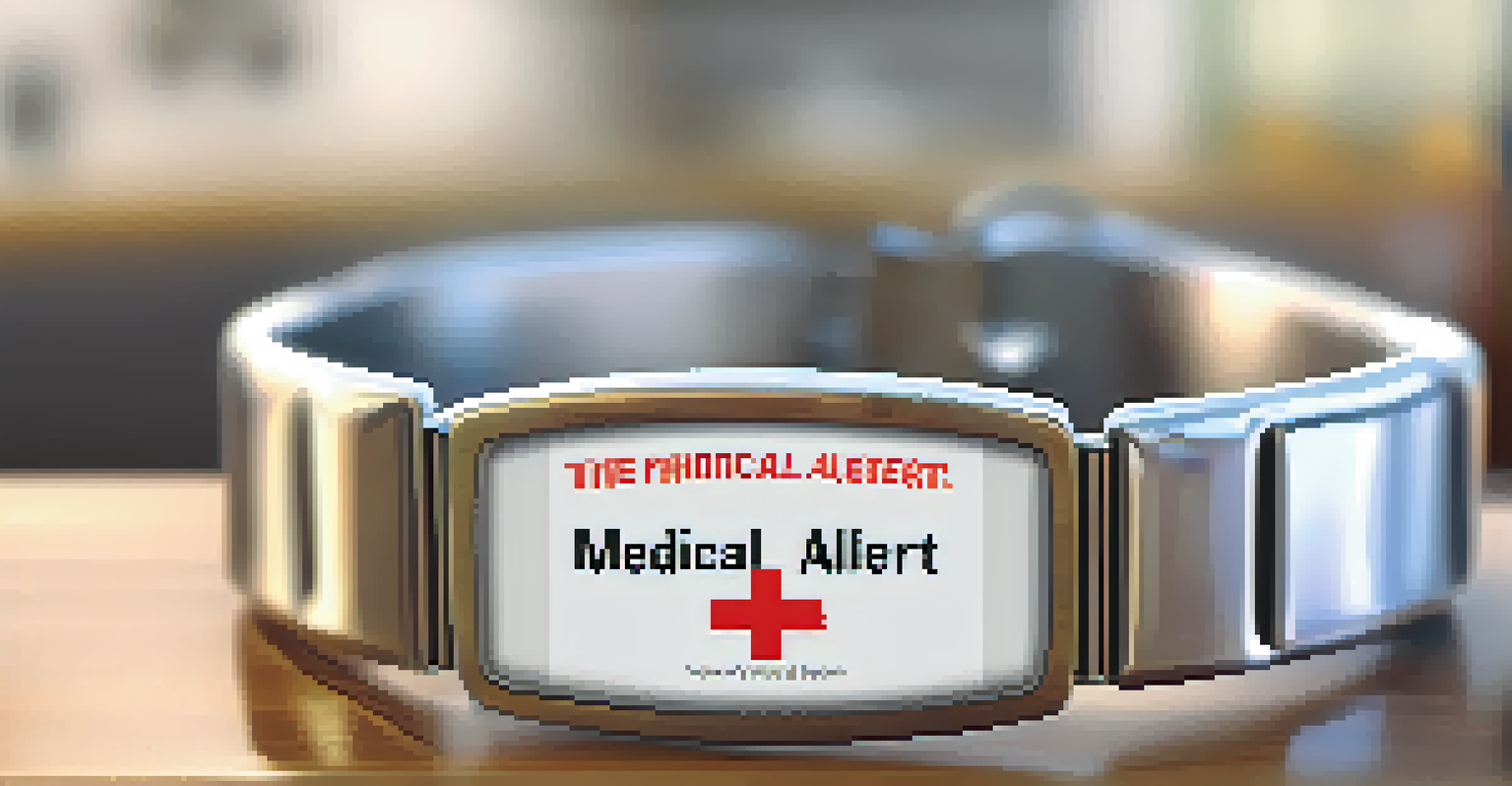Understanding Egg Allergies: Symptoms and Dietary Considerations

What Are Egg Allergies and Who Do They Affect?
Egg allergies occur when the immune system mistakenly identifies proteins in eggs as harmful. This leads to an overreaction that can cause a variety of symptoms. While often seen in children, many people can develop this allergy at any age, making it important for everyone to be aware.
The greatest wealth is health.
In fact, it's one of the most common food allergies among children, with many outgrowing it by adolescence. However, for some, it can persist into adulthood. Understanding who is at risk can help in being proactive about managing symptoms.
It's worth noting that egg allergies can manifest differently from person to person. Factors like genetics and environment may play a role in the likelihood of developing an allergy, emphasizing the need for awareness and education.
Common Symptoms of Egg Allergies
The symptoms of an egg allergy can range from mild to severe and typically show up shortly after consumption. Common reactions include hives, nasal congestion, and gastrointestinal issues like nausea or diarrhea. In some cases, symptoms can escalate quickly, leading to anaphylaxis, a life-threatening condition.

Each person's reaction can differ based on their sensitivity, making it essential to recognize the signs. For instance, while one person may experience a mild skin rash, another might have respiratory difficulties. Keeping a close eye on any unusual reactions after eating eggs is crucial.
Understanding Egg Allergies
Egg allergies occur when the immune system mistakenly identifies egg proteins as harmful, affecting many individuals from childhood into adulthood.
If you suspect an egg allergy, it's wise to consult a healthcare professional for proper diagnosis and management. They may recommend an elimination diet or tests to confirm the allergy, ensuring you have a clear understanding of your body’s responses.
Diagnosing Egg Allergies: Tests and Procedures
When it comes to diagnosing an egg allergy, healthcare professionals typically begin with a detailed history of symptoms. This is often followed by skin prick tests or blood tests to measure the immune response to egg proteins. Both methods help identify if an allergy is present.
An ounce of prevention is worth a pound of cure.
Skin prick tests involve placing a small amount of the allergen on the skin and then pricking it to see if a reaction occurs. Blood tests, on the other hand, check for specific antibodies in the bloodstream that indicate an allergy. These tests play a critical role in determining the best course of action.
Once a diagnosis is confirmed, a healthcare provider will help create a management plan. This plan may include avoiding eggs and their derivatives, as well as having an emergency action plan in case of accidental exposure.
Living with an Egg Allergy: Essential Dietary Tips
Living with an egg allergy requires careful attention to your diet. The first step is to avoid all forms of eggs, including chicken, duck, and quail eggs, as well as foods that contain egg ingredients. Ingredients like albumin, ovalbumin, or egg powder are often hidden in processed foods, so it’s crucial to read labels closely.
Substituting eggs in recipes can be a fun challenge. For instance, unsweetened applesauce, mashed bananas, or flaxseed meal mixed with water can work wonders in baking. These alternatives not only keep your meals egg-free but can also add unique flavors and nutrients.
Recognizing Allergy Symptoms
Symptoms of egg allergies can vary widely, ranging from mild reactions like hives to severe cases requiring emergency intervention.
Engaging in community support groups can also be beneficial. Sharing experiences and recipes with others facing similar dietary restrictions can provide both emotional support and practical tips for navigating food choices.
Cross-Contamination: A Hidden Threat for Egg Allergy Sufferers
Cross-contamination is a significant concern for those with egg allergies, as even trace amounts of egg can trigger a reaction. This can happen in kitchens where eggs are prepared on shared surfaces or utensils. Being aware of food preparation practices is crucial for maintaining safety.
When dining out or eating packaged foods, it’s essential to ask about potential cross-contact. Many restaurants and food manufacturers are becoming more aware of food allergies and can provide information on how they prevent cross-contamination. It’s always better to ask and stay safe.
At home, maintaining separate cooking tools and surfaces for egg-free meals can help minimize risks. Simple steps like using separate cutting boards or thoroughly washing utensils can make a world of difference in keeping meals safe.
Emergency Preparedness for Severe Allergic Reactions
For individuals with a history of severe reactions, having an emergency plan is vital. This often includes carrying an epinephrine auto-injector (like an EpiPen) at all times. Knowing how and when to use this device can be lifesaving during an allergic reaction.
Educating friends, family, and coworkers about your allergy is also important. They should understand the signs of an allergic reaction and how to respond if an emergency occurs. Having a clear action plan can make a significant difference in critical moments.
Essential Management Strategies
Living with an egg allergy involves strict dietary management, awareness of cross-contamination, and preparedness for severe allergic reactions.
Additionally, wearing a medical alert bracelet can provide crucial information in case you are unable to communicate during an emergency. This simple step serves as a reminder for others to take your allergy seriously and act promptly.
Support and Resources for Egg Allergy Management
Navigating life with an egg allergy can feel overwhelming, but there are numerous resources available for support. Organizations like the Food Allergy Research and Education (FARE) provide valuable information, advocacy, and community connections. Their resources can help you stay informed about the latest research and dietary tips.
Local allergy support groups can also offer emotional support and practical advice. Connecting with others who share similar experiences can be incredibly reassuring, allowing you to exchange tips and strategies for managing your allergy in daily life.

Online forums and social media groups also provide a platform to share experiences and discover new recipes. These communities remind you that you are not alone and that many others are successfully managing their egg allergies.